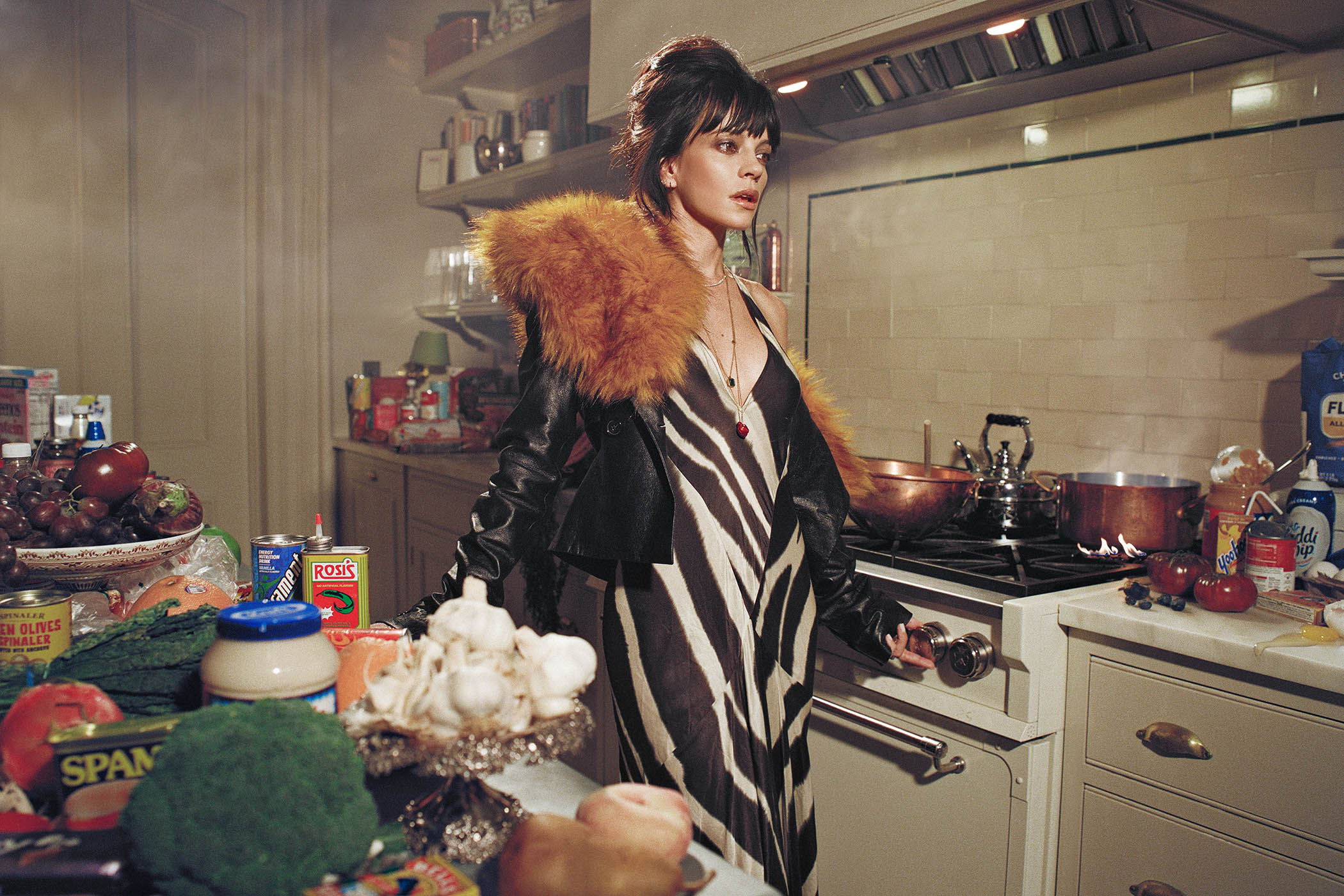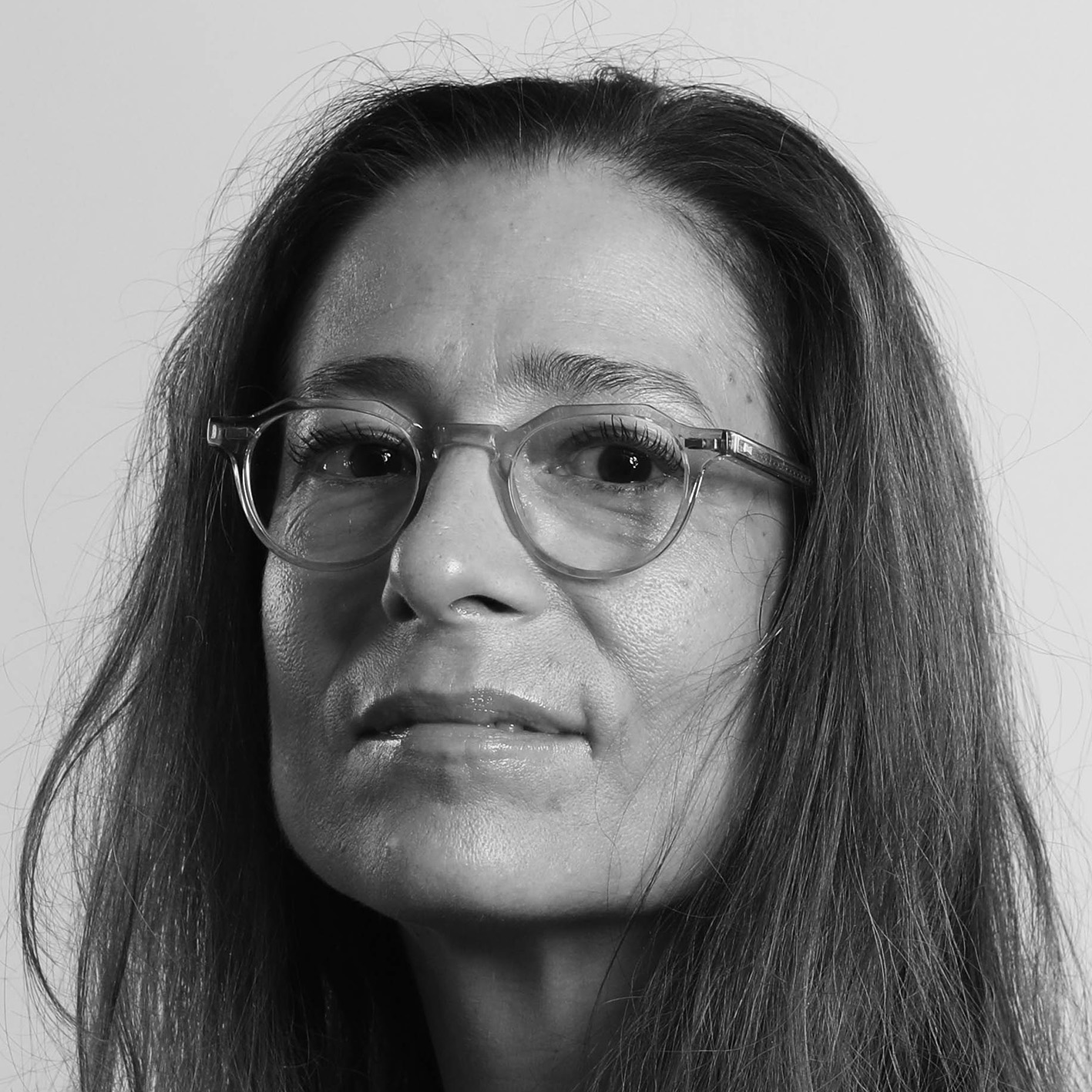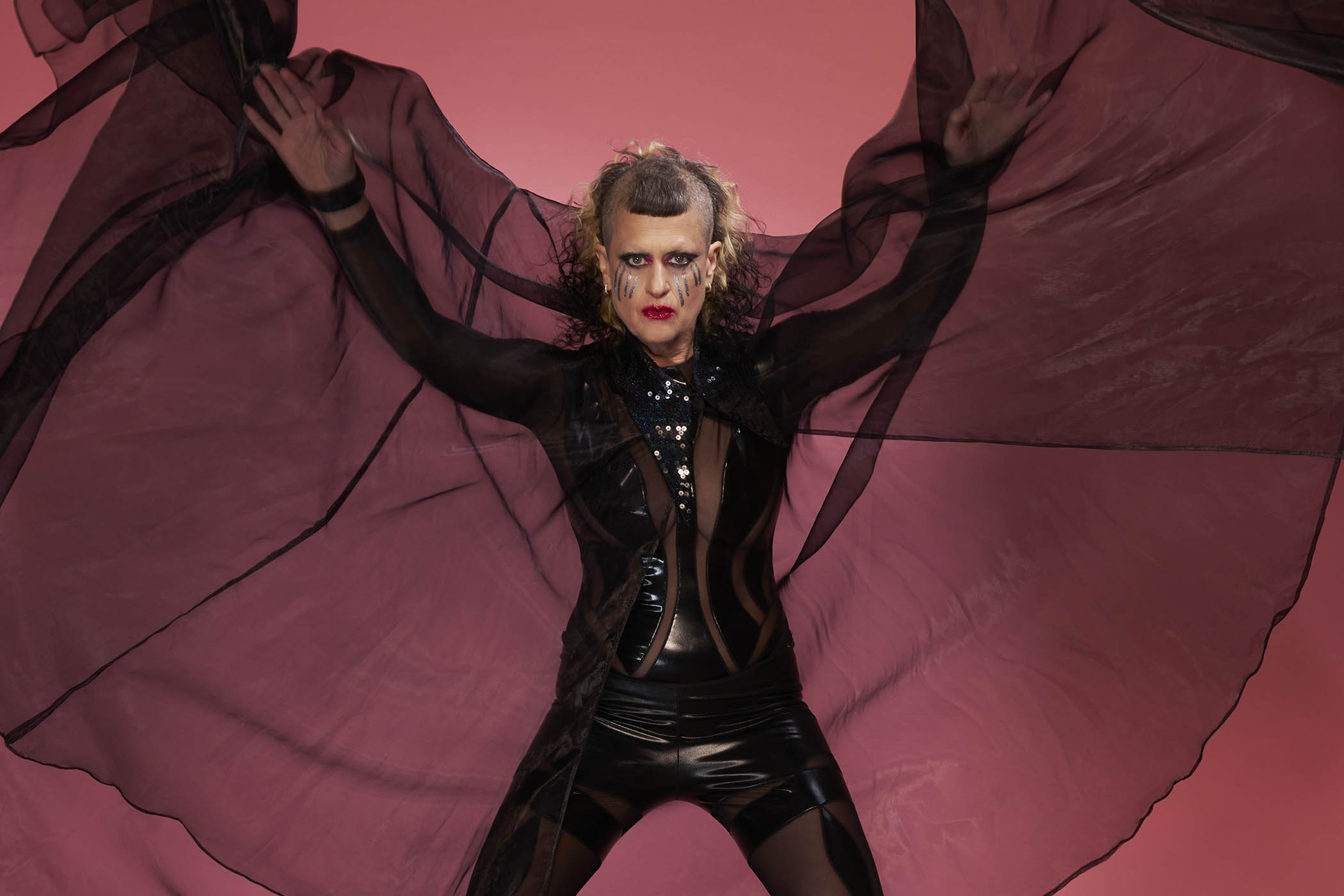Nearly 20 years ago, Lily Allen released her debut album, Alright, Still – a series of sharp, breezy vignettes of twentysomething life. The record didn’t sound like those of Allen’s mass-market pop peers at the time; it sounded like west London’s street markets and record shops, distilled into an accessible vernacular. Alright, Still’s inspired use of ska and reggae samples – such as the piano and horn roll from Big Chief by Earl King and Professor Longhair on Knock ’Em Out – were evidence of time well spent in the melting pot of Portobello Road.
In the intervening two decades, it’s become easy to forget that Allen was once a highly original pop auteur. Although her second album, It’s Not Me, It’s You, continued her savvy flounce through topical themes, its author’s celebrity status quickly took centre stage.
Fame only brought further tabloid scrutiny to this nepo baby, whose father is the 90s lad-about-town Keith Allen. Her own unrepentant high jinks made her a particularly enticing pap target and a gossip mainstay. But Allen’s was just the kind of behaviour famous men routinely got away with. As she notes in a recent interview, some of her most hounded peers from that era are no longer with us: Amy Winehouse, Peaches Geldof, Caroline Flack.
Following her 2018 album, the pointedly titled No Shame, Allen’s pivot to acting and podcasting seemed to confirm that she had stopped writing songs, perhaps indefinitely. Her recent theatre roles have drawn favourable reviews; she can do Ibsen. Her Miss Me? podcast, hosted with her west-London friend and fellow famous daughter Miquita Oliver, has been a hit. And Allen seemed to have embarked on her happily ever after, relocating to the US with her husband, the American actor David Harbour.
West End Girl catapults Allen right back into the pop conversation, for good and ill. The disintegration of her marriage forms the basis of this eyebrow-raising breakup album – a no-holds-barred account of what it feels like when certainties crumble. It has many points of comparison: Beyoncé’s Lemonade, Taylor Swift’s The Tortured Poets Department, both celebrated for their who-did-what-to-whom candour. But it fits just as readily into the mould formed by Charli XCX’s Brat and Allen’s close heir Lola Young: this is messiness, to an eye-popping extreme.
Written and recorded over 10 days in December 2024, with some later polishing, West End Girl charts a winding course from living the dream in a fancy Brooklyn brownstone to a very contemporary nightmare, as what sounds like an unevenly open marriage spirals out of control. Each of the album’s 14 tracks provides a novel plot twist or a fresh, disorienting low.
Albums by pop stars have increasingly begun to feel less more like chess moves in battles fought between former lovers and their lawyers
Albums by pop stars have increasingly begun to feel less more like chess moves in battles fought between former lovers and their lawyers
In terms of drama, it is hard to fault these songs. You follow Allen – even now a convincingly sweet-voiced naif – into a web of deceit. If open relationships need boundaries, these are Allen’s: “Be discreet and don’t be blatant, there had to be payment, it had to be with strangers,” she sings on Madeline, a song addressed to another woman. “But you’re not a stranger, Madeline,” is the track’s husky mic drop.
As the evidence of tawdry transgressions mounts up, Allen’s self-esteem plummets. Dallas Major offers a self-effacing dating app bio: “I’m almost nearly 40, I’m just shy of 5ft2, I’m a mum of teenage children, does that sound like fun to you?”
Related articles:
Gallows humour is one of this album’s strongest suits. “I didn’t know it was your pussy palace,” sings Allen on the infernally catchy Pussy Palace, as more scales fall from her eyes. “I always thought it was a dojo.”
The record has a nimble, cross-genre approach: Allen’s trademark singsong voice is accompanied by Spanish guitars (Madeline) or London vintage two-step beats (Relapse) – the latter a reminder of Allen’sa roots. Relapse also convincingly matches more woozy, looping sounds to her multitracked, Auto-Tuned feelings.
Newsletters
Choose the newsletters you want to receive
View more
For information about how The Observer protects your data, read our Privacy Policy
To Chappell Roan’s Femininomenon coining, we can now add Allen’s Nonmonogamummy. “I’ve been trying to be open,” Allen trills sadly. Does the inclusion of reggae MC Specialist Moss try a little too hard, perhaps, to recapture the eclectic vibes of her youth? Maybe. The replayed quote of Lumidee’s 2003 hit Never Leave You (Uh Oooh, Uh Oooh) on Beg for Me is, by contrast, the kind of illuminating detail this record could have done with more of, reminding listeners of Allen’s musical nous.
West End Girl aims to take heavy material and transmit it lightly – a nuanced tactic that would have still benefited from more diverse references, more canny interpolations and greater resonance from time to time to make the case for Allen as a returning musical force, not simply a woman wronged.
Albums by famous pop stars have increasingly begun to feel less like musical outings and more like chess moves in battles fought between former lovers, their respective lawyers, and the seemingly insatiable appetite for detail that drives current discourse. Maybe a longer gestation would have made this a truly great record rather than one that is deftly handled and deeply saddening.
Photograph by Charlie Denis



